Ian Melin-Jones
Deep-Sea Mineral Platform Launched Ahead of Battery Boom
A new way to meet the growing demand for minerals critical to electric vehicle, electronics and battery manufacturers could become commercially available within this decade. Significant public and private investment have gone into how to extract cobalt, nickel, lithium and other minerals from the deep seabed; however, more than 80 non-governmental organizations have voiced concerns about the dangers of commercial extraction.
- Sea-floor deposits of cobalt, nickel and lithium and other minerals could soon become commercially available
- Venues for policy makers, mining industry and environmental organizations exist, but companies that use these minerals had no space to learn about and take thoughtful action on this topic
- To inform and provide a channel for action, the World Economic Forum has launched the Deep-Sea Minerals Dialogue as an impartial platform for mineral sourcing manufacturers and metal markets
- A new report highlights why mineral sourcing manufacturers and metal markets need to engage now on the deep-sea mineral discussion.
- Read the new paper and learn more about the platform
While venues exist for countries, scientists, seabed mining industry and environmental organizations to discuss deep-sea mining, companies that use these kinds of minerals – the product manufactures and metal markets – previously did not have a place to learn about and discuss this topic. To create the space needed for this industry to come together, discuss and engage on this complex issue, the World Economic Forum has launched the Deep-Sea Minerals Dialogue.
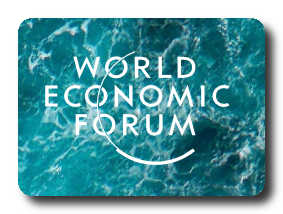 The World Economic Forum is an impartial platform for dialogue and often brings together competitors and groups that may not traditionally work together to discuss complex issues. This new platform will utilize the Forum’s multistakeholder approach and hopes to convene responsible businesses and accelerate their participation on this topic. The new platform will leverage experts with different points of views and analyse decision-making systems and learnings from existing industries.
The World Economic Forum is an impartial platform for dialogue and often brings together competitors and groups that may not traditionally work together to discuss complex issues. This new platform will utilize the Forum’s multistakeholder approach and hopes to convene responsible businesses and accelerate their participation on this topic. The new platform will leverage experts with different points of views and analyse decision-making systems and learnings from existing industries.
Dominic Waughray, Managing Director, World Economic Forum said: “Deep-sea mining is a cross-cutting topic that could affect both progress on climate action as well as the preservation of biodiversity and is connected with the transition to a circular economy. Stakeholders owe it to themselves and to the planet alike to make the wisest decision possible.”
The next years are critical as regulatory, technology and investment decisions are being made. These decisions could determine the environmental and social impact of deep-sea minerals. Although the minerals may not enter supply chain for a few years, examples involving cobalt mining from the Democratic Republic of Congo and palm oil supply from Indonesia, show that failing to act early, can result in costly efforts to clean up the supply chain and reputational impact afterwards.
A new briefing paper released today, Deep-Sea Minerals: What Manufacturers and Markets Need to Know, highlights why mineral sourcing manufacturers and metal markets need to engage now on the deep-sea mineral discussion.
It highlights responsible sourcing considerations for companies that use or exchange metals and minerals, complementing existing reports on the gap between mineral supply and demand as well as the lack of scientific understanding of the deep sea and potential impacts of mineral extraction.
The paper underscores a trend of manufacturers and metal markets increasing their attention on the environmental and social conditions of the minerals they source. It the first in a series of three about the potential extraction of deep-sea minerals, written for manufacturers and market exchanges.
Assheton Stewart Carter, CEO of TDI Sustainability, said: “Decisions being taken now on the development of deep-sea minerals have implications for ocean conservation, responsible sourcing, sustainable production and even for our fight against accelerating climate change. It is a topic of generational importance. We have learned from other industries - such as oil sands development, hydro-electric dams, nuclear power generation - that when decisions to proceed with megaprojects fail to be inclusive and informed by science, it can lead to delays, irreversible social and ecological damage, or abandoned assets – for once we have the opportunity to engage and contribute to opinions on whether and how deep-sea mineral are developed before the industry has begun in earnest. We should grasp it.”
About the Green Horizon Summit and Race to Zero Dialogues
The World Economic Forum is co-hosting the Green Horizon Summit (9-11 November) and special sessions of the Race to Zero Dialogues (10-12 November). These events bring together leaders from business, government and civil society to ensure the post-COVID recovery is sustainable and inclusive. Their aim is to spur greater climate action on industry, transport and oceans as well as drive green finance. Check out more and view live-streamed sessions on our events page.
The World Economic Forum, committed to improving the state of the world, is the International Organization for Public-Private Cooperation.
The Forum engages the foremost political, business and other leaders of society to shape global, regional and industry agendas. (www.weforum.org).
Global Energy Group appoints new director to strengthen and grow renewables business
Global Energy Group has appointed Iain Sinclair to the newly created role of Executive Director of Renewables and Energy Transition with plans to launch a new operation in Edinburgh.
- Edinburgh operation to launch in 2021 as energy transition momentum builds -
The former professional rugby player, who has over 18 years’ experience in senior energy and infrastructure roles, previously held managing director positions at Forth Steel and Murray Plate Group.
Inverness headquartered Global Energy Group has established itself as a major player in offshore wind, investing £90 million to date in its Port of Nigg facility in the Cromarty Firth to enable major infrastructure projects. The firm, which employs more than 1,500 people, has delivered significant contracts for both Beatrice and Moray East offshore wind farms.
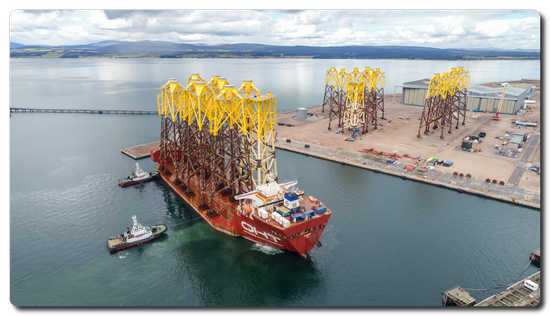 Offshore Jackets destined for Moray East Offshore Windfarm arrive at the Port of Nigg facility in the Cromarty Firth
Offshore Jackets destined for Moray East Offshore Windfarm arrive at the Port of Nigg facility in the Cromarty Firth
Mr Sinclair will join the senior management team and have a group wide remit to develop opportunities in offshore wind, green and blue hydrogen and sustainable infrastructure.
Chairman of Global Energy Group, Roy MacGregor said: “Iain joins us at a pivotal time as we continue our journey to support the energy industry with the transition to net zero. His background and experience are an ideal fit for our future ambitions. He will be responsible for supporting our portfolio businesses in building diverse expertise to increase our contribution to the low carbon sector. I look forward to working with Iain over the coming months as we develop our clean energy strategy.”
Mr Sinclair will be responsible for developing plans that utilise the company’s oil and gas skills and experience as it further diversifies in line with clients’ needs.
He said: “The speed in which the energy transition has accelerated means we are at an incredibly exciting time for the industry as a whole with major infrastructure projects on the horizon and the ScotWind leasing round. Having worked as a supplier to Global Energy Group for several years, I have been impressed with the entrepreneurial spirit, ambitions and investment commitments to support the clean energy industry. I am thrilled to be leading this area of the group and, together with the business unit leaders, further enhancing our offering as we establish a presence in Edinburgh next year.”
About Global Energy Group:
Global Energy Group (“GEG”) are an all-round energy construction and services company headquartered in Inverness, with assets around the Cromarty Firth including the Port of Nigg and a regional hub based in and around Aberdeen. The Company employs more than 1,500 people and is the largest private employer in the Highlands and Islands of Scotland and a significant employer in Aberdeen. GEG is at the forefront of the global transition cleaner sources of energy.
ANKER Foundations - a new technology for wind turbine foundations
ANKER's innovative precast foundations mean that plant construction can be significantly optimized: not simply logistically, but economically and ecologically while at the same time reducing the CO2 footprint
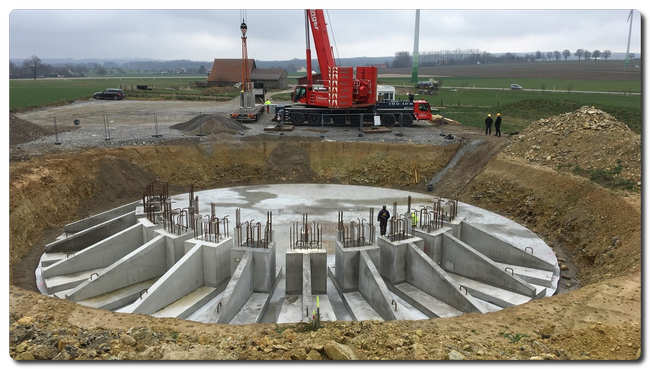
Anker Foundations GmbH
WEG confirms strong presence in the retrofiting of large Transformer for COPEL in Brazil
In addition to the retrofitting of the Transformer, the scope also provided for the study, supply and installation of 12 high voltage insulators for connection in SF6, in other 04 machines
Restoring large equipment, with very unique characteristics, originally from another major manufacturer, and further improving the project, reinforces WEG's quality and high technical capacity. In addition to the repair of the three-phase elevator transformer, the service also involved the study, supply and installation of 12 high voltage bushings, on 04 machines from the same plant.
The performance of the service ensured greater operational security for Copel (Companhia Paranaense de Energia) and also for its users. The Governador José Richa Hydroelectric Plant, also known as the Salto Caxias power plant, located in the city of Capitão Leônidas Marques - PR, where the service was performed, is one of Copel's most important, with 1,240 MW of power.
WEG competed with other important players, including the original manufacturer. Because of this large peice of equipment, with high voltage insulated with SF6 gas, the main differential in this supply was the ability of WEG to quickly develop a manufacturer alternative for such a high voltage bushings that met both technically and commercially, thus enabling the process of reforming the transformer.
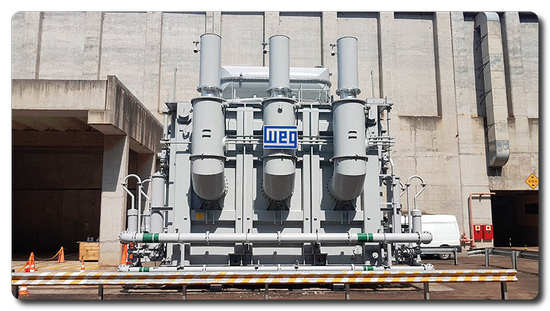
The service package, provided by WEG, included the scope of the study, supply and installation in the field of 12 high voltage RIP SF6 bushings, in the four main transformers already installed; study, adaptation and supply of 03 new high voltage RIP SF6 bushings for the spare transformer; supply of 01 new spare high voltage bushing (RIP SF6); complete overhaul of the transformer, including complete rewinding, new high voltage outputs, studies and improvements in the cooling system, structural improvements in the tank and the main cover, alteration of the pressing system of the active part and supply of a new breech to the core.
In an extremely agile and coordinated process, the WEG team, made up of Engineering, Supplies and Services, made the necessary adaptations to replace the bushings in the field possible, valuing the operational condition as much as possible and reducing the changes in the set of original coil outputs, minimizing any impact on field activities.
About WEG
Founded in 1961, WEG is a global electric-electronic equipment company, operating mainly in the capital goods sector with solutions in electric machines, automation and paints for several sectors, including infrastructure, steel, pulp and paper, oil and gas, mining, among many others. WEG stands out in innovation by constantly developing solutions to meet the major trends in energy efficiency, renewable energy and electric mobility. With manufacturing units in 12 countries and present in more than 135 countries, the company has more than 31,000 employees worldwide. WEG’s net revenue reached R$ 13.3 billion in 2019, 58% from external markets.
OPEC, GECF hold first high-level meeting
Representing the lifeblood of global economy, two of the world’s foremost energy organisations OPEC and the Gas Exporting Countries Forum (GECF) held their first high-level meeting, highlighting the growing cooperation between the two organisations under the framework of the OPEC-GECF Energy Dialogue.
The OPEC delegation was led by HE Mohammad Sanusi Barkindo, Secretary General, and the GECF delegation was headed by HE Yury Sentyurin, Secretary General.
In his welcoming remarks, the OPEC Secretary General made reference to the Memorandum of Understanding that was signed between both organisations on 3 October 2019 to promote the “exchange of knowledge, experience, views, information, data and practices in areas of mutual interest.”
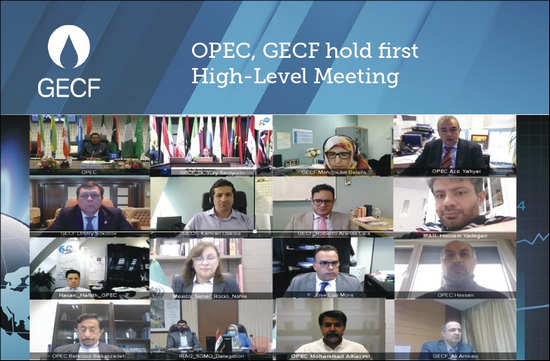
The discussion linked to the two technical expert meetings that were convened in June and October of 2020, which established a structured framework for the Dialogue leading to this first high-level meeting.
“In a very short timeframe, we have launched with great success this mutually beneficial partnership, and look forward to building upon these key milestones today,” HE Barkindo stated.
HE Sentyurin said: “At the GECF, we firmly believe that our well-established OPEC-GECF energy dialogue serves as a foundation for the realisation of valid policies that serve as a framework for international collaboration, and guarantee the much-needed security of supply and demand for oil and natural gas.”
“Although the current market conditions and lockdowns are multiplying throughout the world, we believe that oil and natural gas industries will always be an essential element in achieving a low-carbon energy system globally and regionally and, that they will support the post-pandemic economic revitalisation.”
The commonalities of both organisations were stressed as both share several Member Countries in common: Algeria, Equatorial Guinea, IR Iran, Libya, Nigeria, and Venezuela. OPEC Member Countries Angola, Iraq, and the United Arab Emirates are GECF Observer Members. It was also noted that there will be enhanced opportunities for cooperation among the wider framework of Declaration of Cooperation (DoC) countries who are Members of or Observers to the GECF.
The meeting focused on the impacts of the COVID-19 pandemic on global energy markets in the short-, medium-, and long-term. OPEC also provided an update on the OPEC-non-OPEC DoC, now in its fourth year, as well as on the longer-term Charter of Cooperation. Participants also discussed the work programme and the roadmap for the Dialogue for 2020-2021.
Both parties underscored the importance of crude oil and natural gas to the world economy, as the two commodities, together, will continue to account for more than half the global energy mix.
Building on the collaborative research activities, OPEC and GECF discussed the activities as part of the multilateral cooperation, especially as the industry continues to face a major challenge of the COVID-19 pandemic and its unprecedented fallout on the energy markets and the global economy.
The GECF Secretary General invited OPEC to add its insight into the next edition of the authoritarian GECF Global Gas Outlook 2050 (2021 edition) following the GECF’s inclusion in the 2020 OPEC World Oil Outlook (WOO).
It was agreed that the next High-level Meeting of the OPEC-GECF Energy Dialogue will take place in 2021, if possible in person, and will be hosted by the GECF in Doha.
Background: The GECF and OPEC signed a Memorandum of Understanding on 30 October 2019, to “exchange knowledge, experience, views, information, data and practices in the areas of mutual interest.” Areas of cooperation identified in the memorandum include energy market monitoring, analysis, modelling and forecasting; energy market research studies covering the short- medium- and long-term, and their methodologies; energy market data and statistics, data and statistical operational topics (such as methodologies of data gathering, assessment and dissemination); energy initiatives and developments aimed at sustainability, along with environmental and social responsibility; and other areas and matters involving common interests and concerns.
About OPEC
The Organization of the Petroleum Exporting Countries (OPEC) is a permanent, intergovernmental organization that was founded in 1960. OPEC currently has 13 Member Countries (Algeria, Angola, Congo, Equatorial Guinea, Gabon, IR Iran, Iraq, Kuwait, Libya, Nigeria, Saudi Arabia, United Arab Emirates, Venezuela) and is headquartered in the Austrian capital of Vienna.
About Gas Exporting Countries Forum:
Gas Exporting Countries Forum is an international governmental organisation of 20 Member Countries – Algeria, Bolivia, Egypt, Equatorial Guinea, Iran, Libya, Nigeria, Qatar, Russia, Trinidad and Tobago, Venezuela, Angola, Azerbaijan, Iraq, Kazakhstan, Malaysia, Norway, Oman, Peru, and the United Arab Emirates, which jointly control 72% of the proven gas reserves, 46% of its marketed production, 55% of pipeline, and 61% of LNG exports across the globe. It is headquartered in Doha, Qatar.
Being a foremost energy association, officially established in 2008, the GECF has recorded notable milestones in its evolution and remains committed to supporting its Member Countries in the pursuit of global energy security and meeting the world’s growing energy demand, while proving to be reliable suppliers of natural gas – a prominent contributor in the global pursuit towards net-zero emissions energy systems and attainment of the 2030 Sustainable Development Goals.
The Forum provides granular, scientifically based insights into the state of natural gas based on the diverse variety of the instruments and deliverables such as the Gas Research Institute, the GECF Global Gas Model – now with elements of artificial intelligence and digital technologies, Global Gas Outlook 2050, Annual Short-Term Gas Market Report, Monthly Gas Market Report, Special Envoys on Data and Statistics, Data Exchange Mechanism, the Short-, Medium-, and Long-Term Gas Market Reviews, and Monthly, Quarterly, and Annual Statistical Bulletins.
GECF increasingly engages with UN agencies, the G20 Ministerial Meeting on Energy Transitions and Global Environment for Sustainable growth, ASEAN, EEC, OPEC, OAPEC, APPO, IEF, IEA, IRENA, OLADE, IGU, other peers, and regional entities, as well as maintains strategic multifaceted dialogue amongst natural gas producers and consumers.
Joint Feasibility Study for a chemical complex in India completed, project put on hold due to COVID-19 pandemic
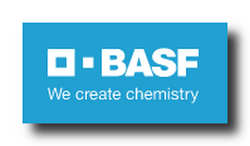 As part of a four-party Memorandum of Understanding (MoU), signed on October 4, 2019, Abu Dhabi National Oil Company (“ADNOC”), Adani Group (“Adani”), BASF SE, Germany (“BASF”) and Borealis AG (“Borealis”), (jointly referred to as “Partners”) have completed a Joint Feasibility Study for a chemical complex in Mundra, India. The project study comprised a world-scale propane dehydrogenation (PDH) plant, a polypropylene (PP) production and an acrylics value chain complex. The planned location at Adani’s Mundra site would enable access to a world-class port and renewable energy supply.
As part of a four-party Memorandum of Understanding (MoU), signed on October 4, 2019, Abu Dhabi National Oil Company (“ADNOC”), Adani Group (“Adani”), BASF SE, Germany (“BASF”) and Borealis AG (“Borealis”), (jointly referred to as “Partners”) have completed a Joint Feasibility Study for a chemical complex in Mundra, India. The project study comprised a world-scale propane dehydrogenation (PDH) plant, a polypropylene (PP) production and an acrylics value chain complex. The planned location at Adani’s Mundra site would enable access to a world-class port and renewable energy supply.
The global economic uncertainties caused by the pandemic have led the Partners to review the timing for undertaking this investment. Despite all attempts to optimize the scope and the configuration, the project has been put on hold.
The Partners remain convinced about the strong fundamentals represented by the Indian market and agreed to periodically explore market conditions and discuss any opportunity that may arise over time.
About ADNOC
ADNOC is one of the world’s leading diversified energy and petrochemicals groups and is a primary catalyst for the UAE’s growth and diversification. To find out more visit www.adnoc.ae. For further information: This email address is being protected from spambots. You need JavaScript enabled to view it.e
About Adani Group
Adani Group, is a diversified organization in India with a combined market cap of over $38 Bn comprising 6 publicly traded companies. It has created world class transport and utility infrastructure portfolios with a pan-India presence. Adani Group is headquartered in Ahmedabad, in the state of Gujarat, India. Over the years, Adani Group has positioned itself to be the market leader in its transport logistics and energy utility portfolio businesses focusing on large scale infrastructure development in India with O & M practices benchmarked to global standards. With four IG rated businesses it is the only Infrastructure Investment Grade issuer in India. Adani owes its success and leadership position to its core philosophy of ‘Nation Building’ driven by ‘Growth with Goodness’ - a guiding principle for sustainable growth. Adani is committed to increase its ESG footprint by realigning its businesses with emphasis on climate protection and increasing community outreach through its CSR program based on the principles of sustainability, diversity and shared values. More information at www.adani.com
About BASF
At BASF, we create chemistry for a sustainable future. We combine economic success with environmental protection and social responsibility. More than 117,000 employees in the BASF Group work on contributing to the success of our customers in nearly all sectors and almost every country in the world. Our portfolio is organized into six segments: Chemicals, Materials, Industrial Solutions, Surface Technologies, Nutrition & Care and Agricultural Solutions. BASF generated sales of €59 billion in 2019. BASF shares are traded on the stock exchange in Frankfurt (BAS) and as American Depositary Receipts (BASFY) in the U.S. Further information at www.basf.com.
About Borealis
Borealis is one of the world’s leading providers of advanced and circular polyolefin solutions and a European market leader in base chemicals, fertilizers and the mechanical recycling of plastics. We leverage our polymers expertise and decades of experience to offer value adding, innovative and circular material solutions for key industries. In re-inventing for more sustainable living, we build on our commitment to safety, our people and excellence as we accelerate the transformation to a circular economy and expand our geographical footprint.
With head offices in Vienna, Austria, Borealis employs 6,900 employees and operates in over 120 countries. In 2019, Borealis generated EUR 8.1 billion in sales revenue and a net profit of EUR 872 million. OMV, the Austria-based international oil and gas company, owns 75% of Borealis, while the remaining 25% is owned by a holding company of the Abu-Dhabi based Mubadala. We supply services and products to customers around the globe through Borealis and two important joint ventures: Borouge (with the Abu Dhabi National Oil Company, or ADNOC, based in UAE); and Baystar™ (with Total, based in the US).
www.borealisgroup.com | www.borealiseverminds.com
Metso Outotec launches Filter Optimizer for improved filter performance and optimized energy consumption
Metso Outotec is introducing the innovative Filter Optimizer to further boost the performance of its Larox® PF filter in the mining and chemical industry processes. The game-changing Filter Optimizer improves the PF filter performance by enabling more precise control over the solid/liquid separation process. The new optimizer stabilizes the effect of upstream process variations, provides tools for improved process control and reduces the need for manual intervention.
In mining processes, the new Filter Optimizer complements Metso Outotec’s other advanced control solutions for concentrator plants consisting of the Grinding Optimizer, Flotation Optimizer and Thickener Optimizer.
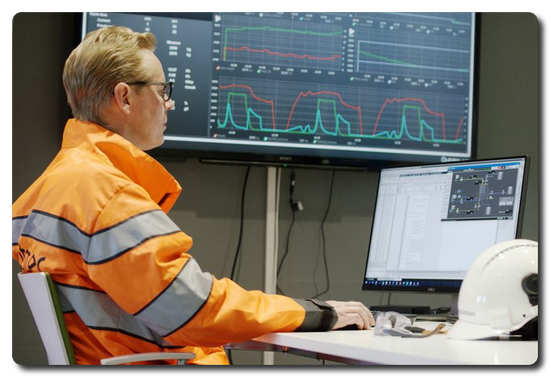
The Filter Optimizer enables automatic adjustment of filtration as well as pressing and air drying setpoints based on filter performance. Compressed air usage is optimized in the controlled air-drying sequence, resulting in optimized energy consumption.
“The new Filter Optimizer automatically adjusts the filter’s process performance, adapting to upstream process variations. Instead of relying on manual moisture sampling and cake-weight monitoring, new setpoints are calculated on the go and adjusted automatically,” explains Leena Tanttu, Senior Manager, Process and Testing of Filters at Metso Outotec.
Thanks to the optimizer’s remote connectivity, rapid OEM expert support is available for fine-tuning of the system parameters and further optimization of performance. An integrated historical database increases process visibility and provides a powerful tool for performance evaluation.
Key benefits of the Metso Outotec Filter Optimizer
- Maximized productivity with optimized filter cycle
- Optimized energy consumption
- Consistent residual cake moisture
- Flexible filter operation and control even under changing process conditions
- Improved process visibility
Metso Outotec is a leading developer and supplier of solid/liquid separation solutions for the process industries utilizing wet processing. In addition to filters, Metso Outotec provides a full scope of services for filters, including process optimization services, optimizer performance reporting, annual on-site maintenance visits, remote and on-site support, and more.
Find out more about the Filter Optimizer application on our website.
Further information, please contact:
Mikko Pulli, Product Manager, Advanced Control Solutions, Metso Outotec Corporation, tel. +358 20 5294522, email: mikko.pulli(at)mogroup.com
Metso Outotec is a frontrunner in sustainable technologies, end-to-end solutions and services for the aggregates, minerals processing, metals refining and recycling industries globally. By improving our customers’ energy and water efficiency, increasing their productivity, and reducing environmental risks with our product and process expertise, we are the partner for positive change.
Headquartered in Helsinki, Finland, Metso Outotec employs over 15,000 people in more than 50 countries and its pro forma sales for 2019 were about EUR 4.1 billion. The company is listed on the Nasdaq Helsinki. mogroup.com
Making the most of downtime
~ When a factory is in shutdown, sitting still shouldn’t be the first option ~
Injuries in sport are inevitable, but the greatest sporting comebacks haven’t been achieved by simply accepting the circumstances and waiting for recovery. The same philosophy can be applied to factory shutdowns. Here, Chris Johnson, managing director at specialist bearings supplier SMB Bearings explores the factory maintenance opportunities gifted by an unexpected pause in production.
An unexpected factory shutdown can occur for a number of reasons — political, environmental, technical, or, at the moment, virus-related. Whatever the cause, unplanned shutdowns or changes to schedules can have a profound impact on the company operating the facility and its bottom line.
However, what if a plan is developed in advance; one that can be implemented during times of halted production? An alternative way of looking at shutdowns is that they are a fantastic opportunity to conduct preventative maintenance, make incremental equipment upgrades, or even invest in staff development opportunities.
In 2017, it was estimated that downtime costs UK manufacturers £180 billion every year. Actually, the true cost of downtime goes far beyond the financial data, and can wreak havoc in multiple areas of a business. While avoiding downtime altogether would be an ideal goal, aiming for near-zero downtime should instead be a facilities’ first — and more realistic — line of defence.
Gathering machine data through the use of an automated system can help facility managers plan and foresee production disturbances far more accurately. However, if an unavoidable shutdown does occur, then how should plant managers respond?
Opportunistic maintenance
It might not be possible to accurately predict the length of a production disturbance, so it isn’t advisable to implement lengthy maintenance tasks. Instead, manufacturers should focus their efforts on projects that can be completed in a single day, so that the facility can be back up and running if circumstances change.
Opportunistic maintenance to prevent future equipment failures is an ideal undertaking in this scenario. Such an approach to preventative maintenance takes advantage of unscheduled pauses in production to replace components, improve system availability and reduce production losses.
However, for opportunistic preventative maintenance to be successful, managers must be aware of when, and where, replacement components are needed in order to gain the most cost-effective improvement. For instance, if a machine has been idle for some time, temperature changes and condensation may create moisture within the system. Therefore, changing the oil to remove contaminants before start-up is cost-effective, if it prevents future equipment failure.
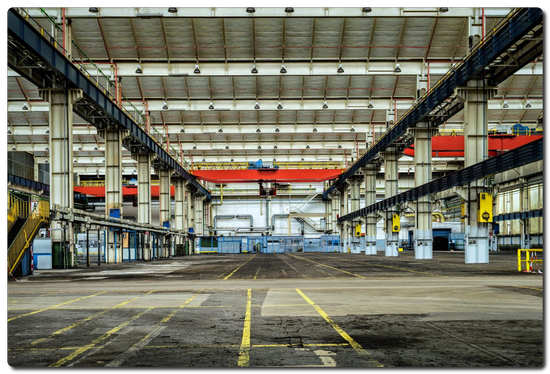
Equipment upgrades
Aside from part replacements, an unexpected production disturbance can be an ideal opportunity to undertake unscheduled equipment upgrades. Take bearings for example. As a critical machine component that keeps manufacturing processes running and rotating smoothly, bearings may require relubrication, realigning or for the equipment balance to be addressed to avoid premature equipment failure.
By replacing a standard bearing with a smart bearing, this can provide operators with a real-time overview of the bearing’s performance and health. Installing a smart sensor, or a bearing with a sensor integrated into the component’s housing, is a simple facility upgrade that is both cost-effective and easy to integrate into existing systems. The self-diagnosing bearing can then send signals to an external condition monitoring unit, which can notify the operator when an action is required.
Staff development
A pause in production can also be a fantastic opportunity to train and upskill employees. Especially as, according to a study, 23 per cent of all unplanned downtime in manufacturing is due to human error. Instead, downtime can be spent enrolling employees onto online courses. If the course is tailored to a specific job role or skill-set, then the worker can develop a deeper understanding of the installation, programming and maintenance of specific pieces of equipment.
Not unlike preventative maintenance applied to machines, good quality team training can help prevent future instances of human error — and yield valuable advantages once production is back up and running.
Like the athlete recovering from an injury, a robust plan of recovery can be crucial step towards getting the most out of pauses in production. Shutdowns needn’t be something to dread but, rather, an opportunity for manufacturers to seize unexpected opportunities and gain competitive advantages.
For further information on SMB Bearings’ range of specialist bearings, visit www.smbbearings.com.
About SMB Bearings: SMB Bearings originally specialised in miniature bearings, thin-section bearings and stainless steel bearings. By natural progression, the company expanded the range to include other corrosion resistant bearings such as plastic bearings, 316 stainless bearings and ceramic bearings.
Remaining a specialist business, SMB Bearings provide a high level of product knowledge, providing bearing and lubrication solutions to existing or potential customers, whether individuals or large corporations. SMB Bearings does not just sell bearings, but helps to solve your problems.
For further information please visit www.smbbearings.com
Ref: SMB191/11/20
BASF markets anode binders for lithium-ion batteries made in Europe
Electric mobility is one of the most promising solutions to today’s climate and energy challenges. Especially in the European Union this issue has made it to the top of the public agenda. The key to successful electric vehicles and their mass adoption lies within lithium-ion battery technology. From a technical point of view, there is still need for improvement, for example when it comes to capacity and charging times. But also, global availability and local supply of raw materials are further important issues that concern battery manufacturers and OEMs.
- New anode binder series for Li-ion battery manufacturing
- Licity® binders combine improved battery performance with sustainability features
- Global production and local supply in all regions worldwide
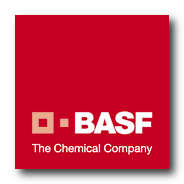 BASF has developed its new Licity® product range in order to meet these needs. Depending on their requirements, customers can choose between series with different application focus, e.g. binders suitable for pure graphite or silicon-containing anodes. Irrespective of focus, all Licity binders enable higher capacity, increased number of charge / discharge cycles and reduced charging times. Additionally, Licity binders enhance performance in low temperature environments, provide superior adhesion to collector foil and high compatibility with a broad range of active materials. Moreover, they can be customized to meet customers’ needs.
BASF has developed its new Licity® product range in order to meet these needs. Depending on their requirements, customers can choose between series with different application focus, e.g. binders suitable for pure graphite or silicon-containing anodes. Irrespective of focus, all Licity binders enable higher capacity, increased number of charge / discharge cycles and reduced charging times. Additionally, Licity binders enhance performance in low temperature environments, provide superior adhesion to collector foil and high compatibility with a broad range of active materials. Moreover, they can be customized to meet customers’ needs.
Besides, customers can benefit from sustainability features: Licity binders are waterborne, carboxylated styrene butadiene copolymers with very low VOC content. Furthermore, CO2 can be saved when Licity products are manufactured according to the biomass balance approach. In this binder version, biomass is fed into BASF’s production process and allocated to the binder. From the raw materials to the delivery of the Licity anode binders, BASF is committed to aligning economic goals with environmental and social responsibility.
“Strong and capable batteries pave the way for a broader dissemination of electric vehicles. Backed by our extensive expertise in binders gained through decades of research and development for numerous applications in the automotive and transportation sectors, we are pleased to be able to offer our customers a new binder technology that pushes the capabilities of lithium ion batteries,” explains Christoph Hansen, Senior Vice President Dispersions & Resins EMEA at BASF.
More information about the Licity binders can be found here: www.basf.com/licity-battery-binders
Forum’s XT500 trenching system to support major cable maintenance project in Asia
Forum Energy Technologies has secured an order to supply specialist subsea equipment for a major cable maintenance project in South East Asia.
The contract, which was awarded through Forum’s local representatives, will see the company deploy a Perry® XT500 trenching system and Dynacon® Launch and Recovery System as well as associated surface power and control installations. The equipment will be used to support telecommunication contracts in South East Asia and the Indian Ocean.
The XT500 trenching system is ideally suited to cable maintenance projects with a 3,000m depth rating and three metre ROV burial capability on the ocean floor. It utilises Forum’s proven Integrated Control Engine (ICE™) and has robust 500 HP power.
The vehicle will be manufactured at Forum’s facility at Kirkbymoorside, Yorkshire and installed onboard the client’s vessel in early 2021.
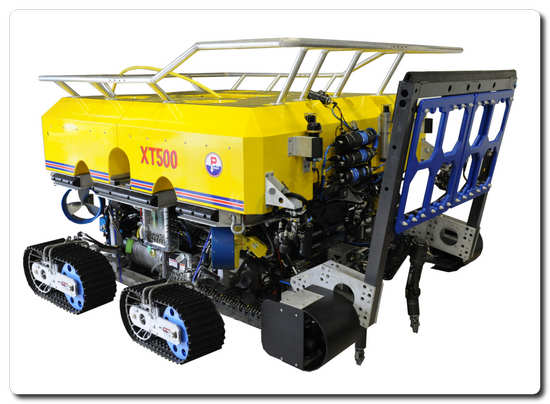
As part of the workscope, Forum will also deliver operational and maintenance training for the client’s personnel and provide support during the first mobilisation onboard the vessel, including sea trials.
Kevin Taylor, Forum’s Vice President - Subsea Vehicles, said: “Forum has a strong reputation globally for manufacturing high quality, robust ROVs and associated auxiliary products for a number of industries ranging from oil and gas to renewables, defence, mining and telecommunications. We have continued to strengthen our footprint in Asia and this contract is a testament to our high-quality equipment and skilled personnel. Our local representative is a well-respected supplier in the region and our partnership has provided a strong channel to complement to our existing framework.
“This is the fifth ROV we have delivered to this client and we are thrilled the organisation continues to see the value our ROVs deliver. I am looking forward to seeing our system provide the required operational resilience, reliability and performance standards expected in such a safety-critical sector.”
The XT500 trenching system is designed to meet the demanding trenching requirements of both strong soils and deep flowline burial protection over long stretches. Capable of operating in free-fly, skid-based trenching and survey modes, the system is designed for demanding applications, providing a robust solution even in the world’s harshest environments.
Forum Energy Technologies, Inc. is a global oilfield products company, serving the subsea, drilling, completion, production and infrastructure sectors of the oil and natural gas industry. The Company’s products include highly engineered capital equipment as well as products that are consumed in the drilling, well construction, production and transportation of oil and natural gas. Forum is headquartered in Houston, TX with manufacturing and distribution facilities strategically located around the globe.
For more information, please visit www.f-e-t.com
